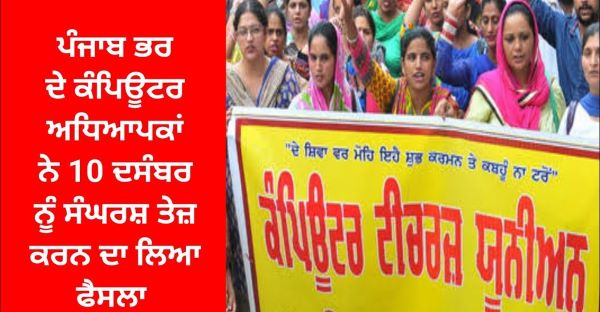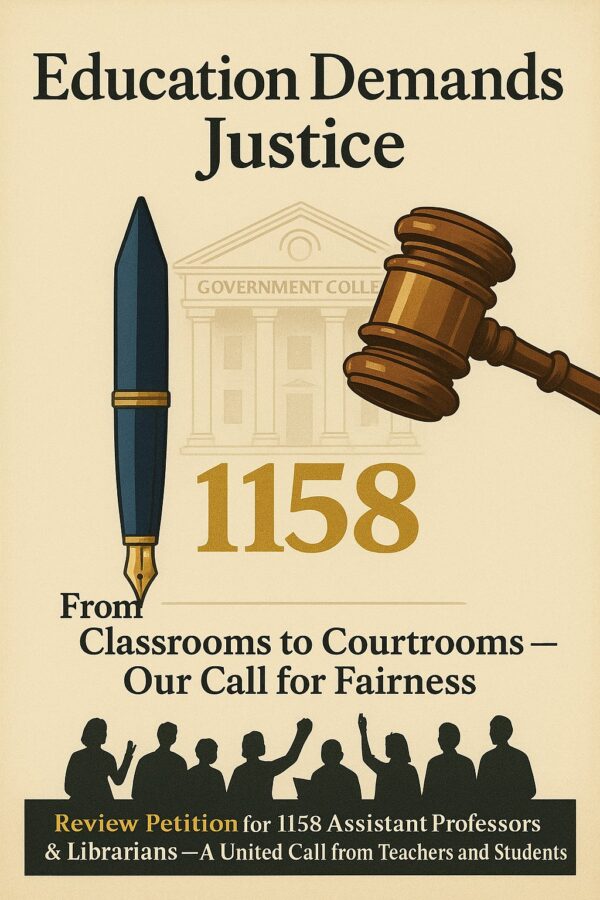 A group of 1,158 assistant professors and librarians across Punjab have declared their readiness to serve the state’s educational institutions, emphasising the urgent need to prioritise education over political considerations. Their rallying cry – “Let’s rise above politics and protect the future of classrooms, colleges and students” – highlights growing concerns about the state of higher education in the region.
A group of 1,158 assistant professors and librarians across Punjab have declared their readiness to serve the state’s educational institutions, emphasising the urgent need to prioritise education over political considerations. Their rallying cry – “Let’s rise above politics and protect the future of classrooms, colleges and students” – highlights growing concerns about the state of higher education in the region.
Parallel to this development, computer teachers across Punjab have intensified their struggle for basic employment rights and benefits. Their key demands centre around fundamental workplace protections that they argue have been long overdue. The main demands of the computer teachers include implementation of the Punjab Civil Service Rule and Sixth Pay Commission, benefits to be given in case of the death of an employee, and proper recognition of their service contributions.
The educators’ frustration stems from what they describe as a pattern of acknowledged but unaddressed concerns. “Whenever we meet the government, they term our demands as genuine but these are never implemented,” said a representative of the computer teachers’ group, reflecting the sentiment shared across the educational community. This disconnect between government acknowledgement and action has created a sense of urgency among educators who feel their professional contributions are being undervalued despite official recognition of their legitimate concerns.
The involvement of over 1,000 assistant professors and librarians underscores the breadth of concern within Punjab’s academic community. These educators play crucial roles in delivering quality higher education, supporting research initiatives, maintaining academic resources and libraries, and mentoring the next generation of students. Their readiness to serve despite ongoing challenges demonstrates their commitment to educational excellence.
The unified voice of these educators represents more than just employment demands – it’s a call to prioritise educational infrastructure and human resources that directly impact student outcomes and institutional quality. The educators emphasize that their movement transcends political boundaries, focusing instead on the fundamental need to strengthen Punjab’s educational ecosystem for current and future generations.
As these educators continue to advocate for their rights while expressing readiness to serve, the spotlight remains on government officials to translate their acknowledged support into concrete policy implementation. The situation highlights broader questions about educational policy, government accountability, and the value placed on academic professionals who form the backbone of Punjab’s higher education system. The story continues to develop as educators await meaningful dialogue and policy implementation from state authorities.